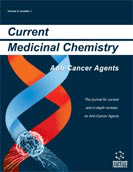Abstract
Some growth hormone-releasing hormone (GHRH) antagonists are able to inhibit the growth of various experimental human cancers. The antitumor effects of first antagonists seemed to be dependent mainly on the disruption of pituitary secretion of growth hormone (GH), followed by a reduction in the levels of circulating insulin-like growth factor (IGF)-1, an important growth factor for cancer cells. It seems obvious that growth hormone deficiency (GHD) induced by GHRH antagonists, with all its complications, could limit the beneficial effects of GHRH antagonist therapy, and decrease the quality of life of the patient. The discovery of local autocrine/paracrine production of GHRH and other related growth factors in many tumoral tissues, together with that of the wide expression of GHRH receptors on cancer cells, have directed research to the synthesis of more potent GHRH antagonists. These compounds exert strong inhibitory effects directly on tumor growth, with scarce endocrine action. The receptor-mediated mechanisms are complex and still not completely understood, and involve various intracellular signaling pathways strictly related to human tumorigenesis. This chapter summarizes the recent patents and latest observations on the antineoplastic role of GHRH antagonists in human tumors with an emphasis on the potential therapeutic applications for clinical oncology.
Keywords: Acromegaly, AMPK, angiogenesis, benign prostatic hyperplasia, breast cancer, cancer therapy, GHRH, GHRH analogs, GHRH antagonists, GHRH receptors, IGF-I, IGF-II, intracellular pathway, janus kinase, lung cancer, MAPK, neuropeptides, oncology, PACAP, prostate cancer, tumor growth.






















